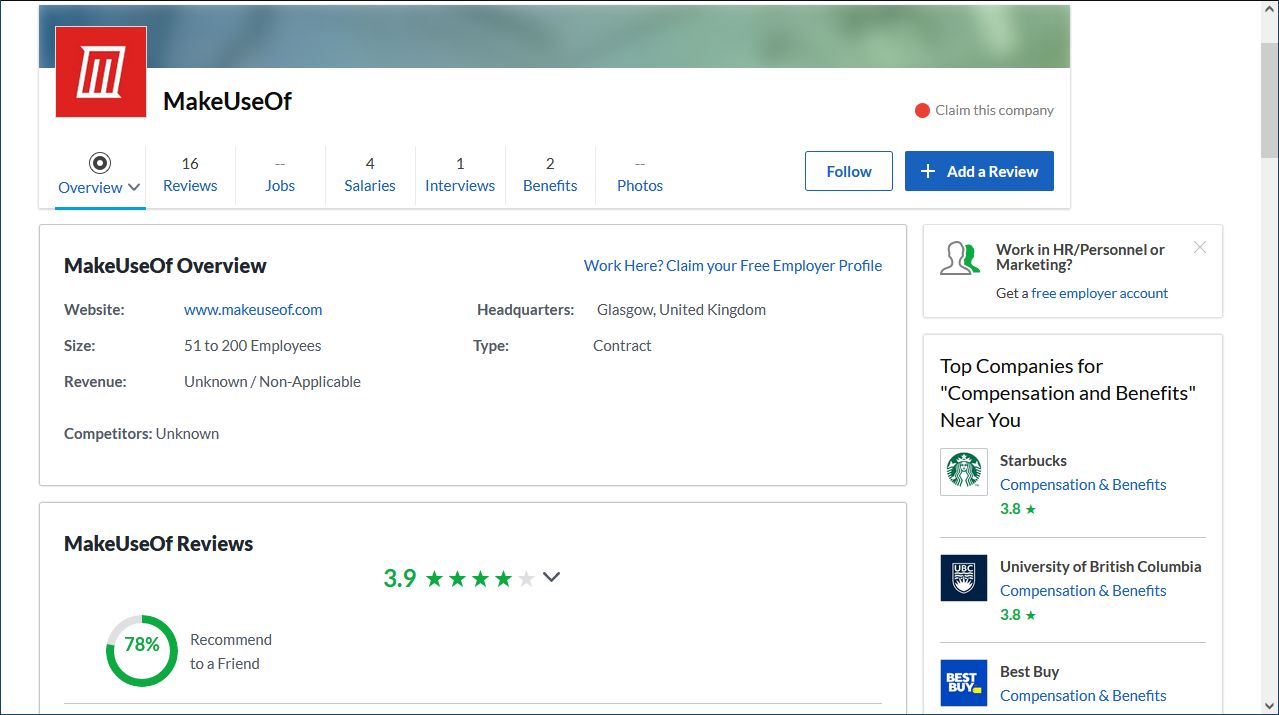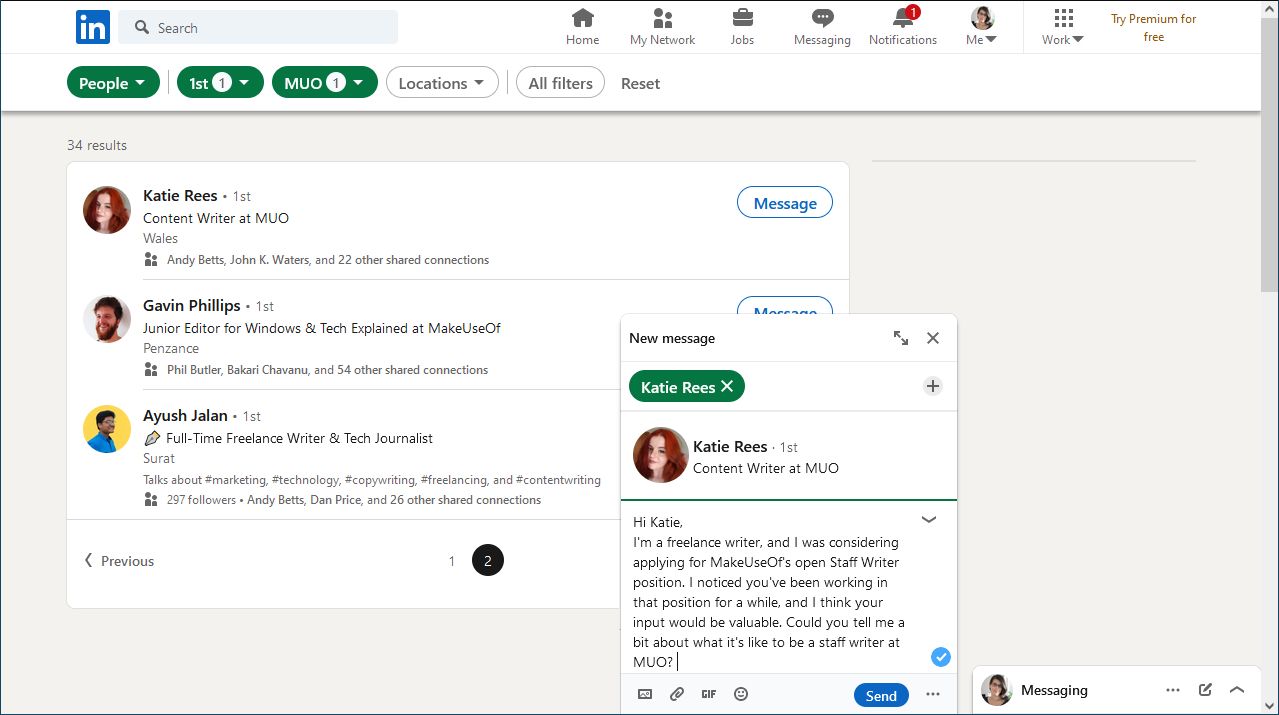With remote work, it's harder to evaluate a potential employer. When you can interview in person, you get a rich level of detail about the workplace, but you can't do that online. This makes it easier for employers to sanitize off-putting aspects.
If you know what questions to ask, though, you can tell the toxic workplaces from the golden opportunities. Here are four questions you should ask before you accept a new online job.
1. What Do Previous Employees Think?
There are lots of job-evaluation websites where past employees can post reviews. It's important to use critical thinking, though, as some reviews can be misleading. Be sure to check the date of a review, and be critical of older ones. Policies or managers that the review comments on may be different now. You should also be cautious of positive reviews that don't name anything specific. Some companies create such “plant” reviews to boost their scores.
When reading a complaint, there is more to consider. What ruined an experience for one person might not be a problem for you. For example, someone might complain about a lack of guidance. But if you prefer more freedom in your choices, you might enjoy that kind of flexibility.
Always take accusations of discrimination and harassment seriously. They're almost never fake, though they are hard to prove. As The Washington Post explains, it's rare for victims of discrimination to receive compensation. So no one is filing a false claim in the hopes of getting rich. Discrimination issues can be hard to spot until you've already signed a contract. Thus, former employees are nearly the only way to get warned about them.
2. What Do Current Employees Think?
You can find reviews from current employees on websites like Glassdoor as well. But, for the best information, you need a proper conversation. Use LinkedIn to find the workplace and reach out to employees who have worked there for a while.
Aim for an employee who has the job title you're considering. It's best if they've been at the company for at least a year. This way, they've been there long enough to have a properly-informed opinion. Avoid talking to hiring managers and recruiters. Folk in these positions may have developed too many positive biases.
Once you've selected some people to connect with, reach out and ask if you can chat with them. It's a good idea to ask about what their average workday is like. Also, ask about how management responds to mistakes and complaints. It's never a bad idea to inquire about upward mobility and employee turnover.
It's important to be polite and maintain a friendly rapport. After all, this person could soon be your coworker or even your boss! Asking about salary is rude in some cultures. Get this information from review sites, instead.
3. Are They in the News?
Checking the employer's news presence can be a good way to tell whether they've had any scandals. If the company has been in trouble many times for similar things, it's a big red flag. To find this information, you can use Google's Advanced Search.
Write the company name with “quotes” around it to limit the results, then check the News tab. You can limit results more by adding the word “Employees” in quotes. You may have to filter more if the company is a content creator.
When assessing these results, you should take the source's reputation into account. Beware of sensationalist language, and ignore anything from a known tabloid. When in doubt, there are online tools you can use to identify fake news.
Most companies won't have any negative press, except for poor product reviews. If the company has even one news article criticizing its treatment of employees, try to find out more. Especially if the article is recent.
You should also see if the company has published any response to this news coverage. It may be on social media rather than a formal press release. Other times, a company may quietly change a policy after getting criticized in the news for it.
4. What Does Public Opinion Say?
If you're still not sure whether you should accept the job offer or not, you can broaden your search. Post questions for your LinkedIn network and your social media followers. Ask what they've heard about the company, and especially what it's like to work there.
Similar to this, if you use Twitter, you can ask your followers what they think about where you are going to start working. This way, you may get some useful feedback. You can also read more broadly about the company. Browse their website and try to get an idea of their brand. If you're an editor, for instance, you don't want to associate with a company that often has typos in its material.
You can also get a sense of the brand's political leanings. Learn about their sustainability and human rights policies. For very large companies, see if they openly support any political figures. Becoming the company's employee means you take some of its brands into your personal brand, so be picky.
Expand your search beyond the website, too. See if they have a presence on YouTube or podcast networks. Check their social media mentions. You can also ask friends what they've heard about the company.
Choose Your Job With Confidence
Without a physical location to visit, it can be hard to know what you're getting into. But that doesn't mean you have to go in completely unarmed. There are lots of tools and resources you can use to inform your job hunt. Present and past employees are the best way to know what the job will actually be like, so don't be afraid to reach out!
Remember, it's not just important that you fit the job profile, the job needs to fit you, too. It's a bad idea to re-arrange your beliefs and attitudes to accommodate a new job. Those changes might not be sustainable. Look for options that fit you better.





